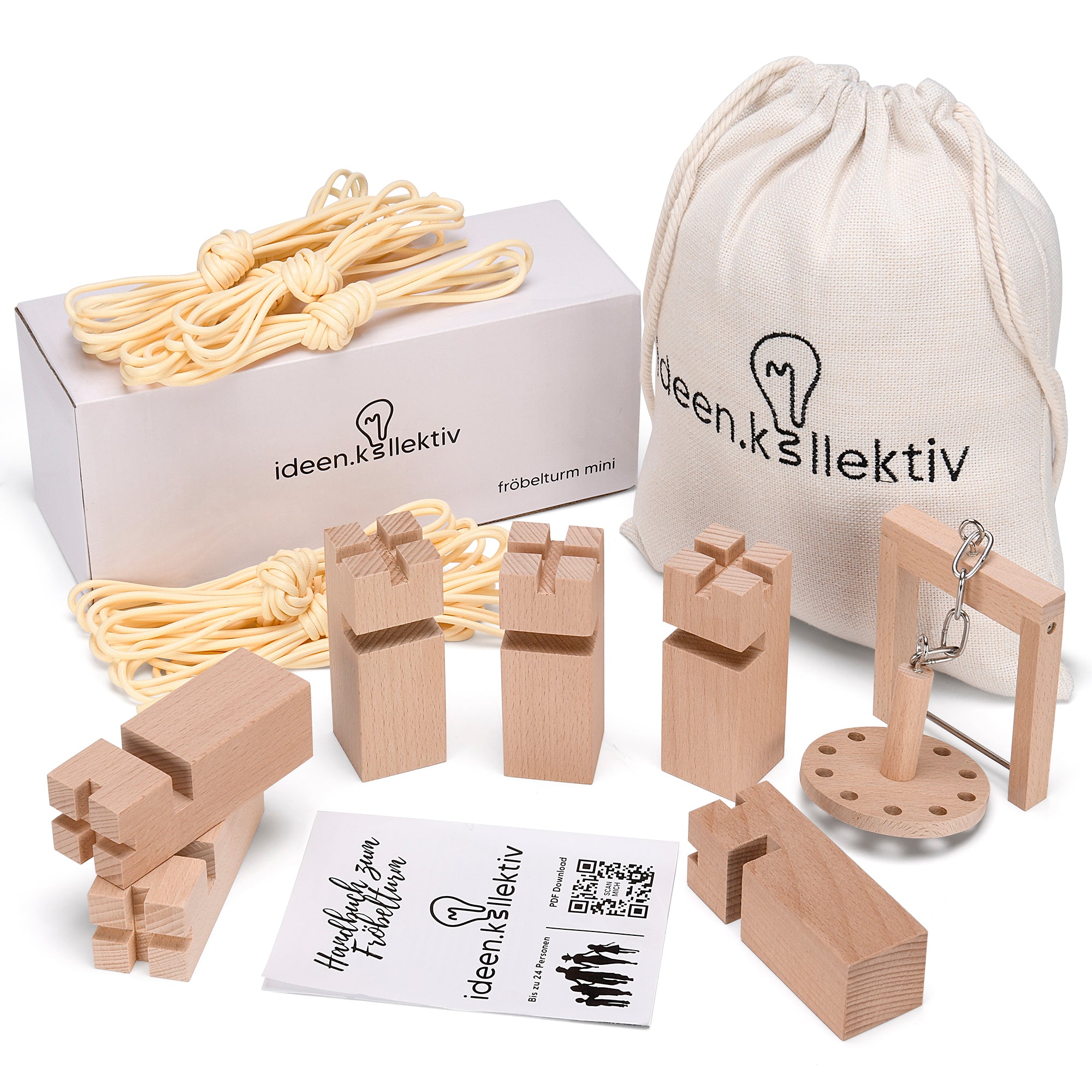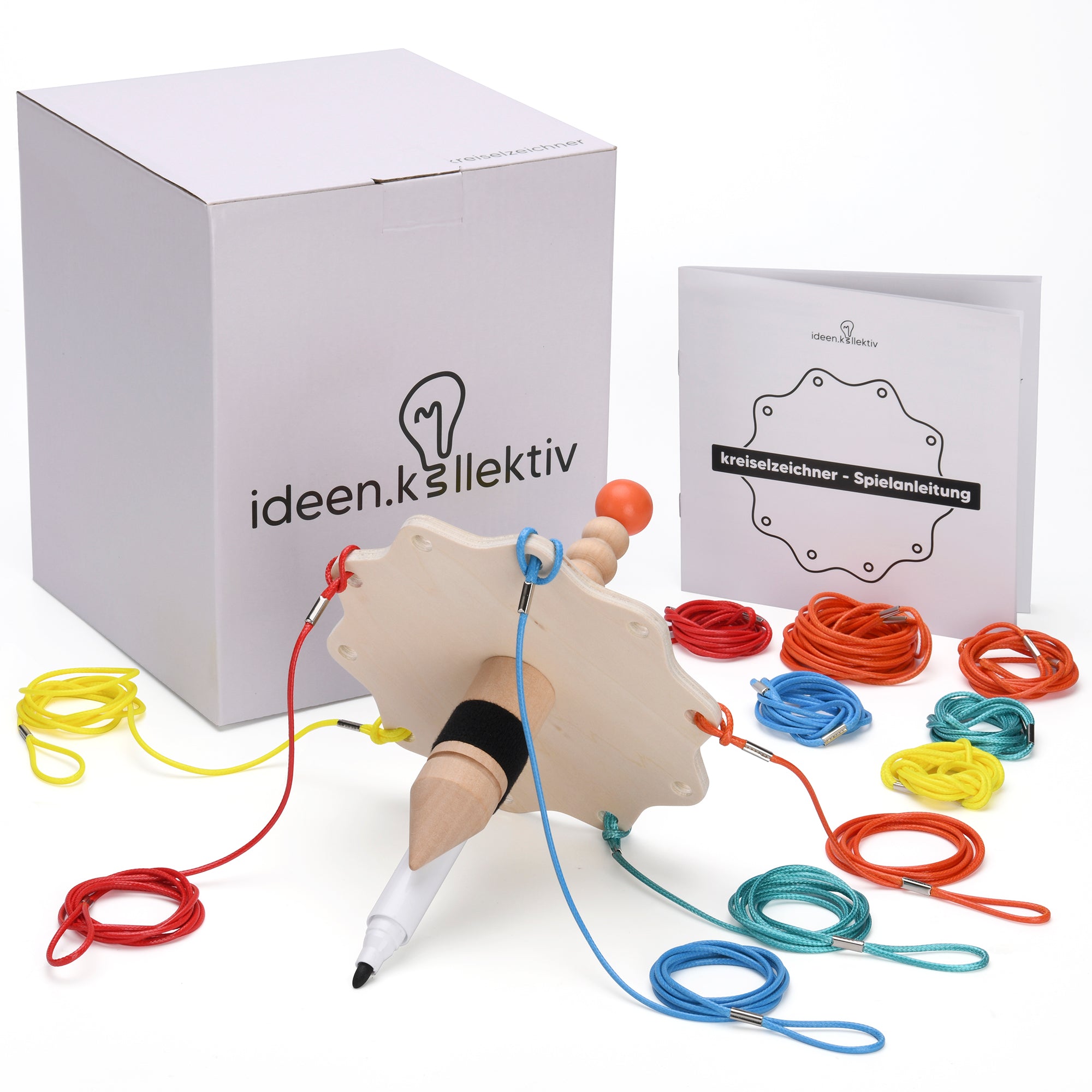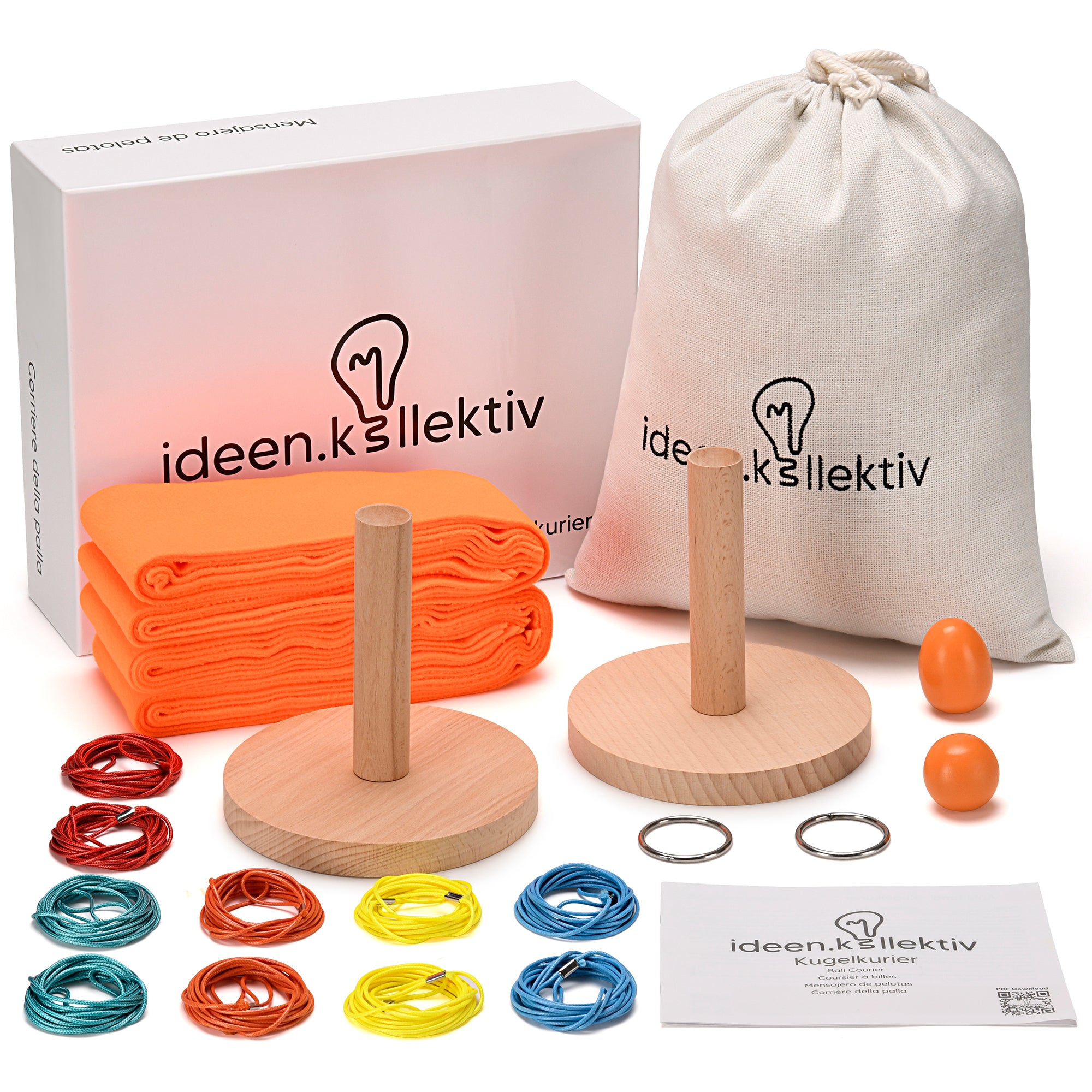In our world full of images and impressions, we often rely on what we see for granted. But this can sometimes be a hindrance in a team: We judge too quickly, allow ourselves to be deceived by appearances, or overlook subtle signals. That's why more and more companies are discovering team games without sight – cooperative games that build true trust. These games are now an exciting part of many modern team-building events.
When our sense of sight is suddenly switched off, we are forced to use other skills: attentive listening, clear descriptions, precise instructions, and tact. This allows teams to grow together on a whole new level. Suddenly, what matters is not status or role, but mutual support and communication. Trust develops not because we control, but because we experience each other .
Games that surprise
There are many ways to create a blind team game: from a small trust course to challenging group tasks where no one is allowed to see. They all share one goal: to build trust without using your eyes.
- 🧭 a blind tour using only language
- ✋ Touch and name things
- 👐 Puzzle materials together
- 🗺️ orientate yourself together in the room
A particularly versatile example is the Feel & Find play set . The set contains various tactile objects and tasks specifically designed to promote the sense of touch and communication within a team. Players feel different geometric or tactile shapes and try to identify them together or develop a story from them. This creates a communication game that promotes team spirit, patience, and precise communication.
Fun Fact
😎 Did you know that up to 80 percent of our sensory impressions pass through our eyes? As soon as we block this channel, the brain activates entirely new areas – basically a free brain workout, complete with team power!
Incidentally, researchers have discovered that people without vision can increase their reaction time to sounds by up to 20% – a real advantage when it is important for a team to perceive signals at lightning speed 2 .
More than a game
Blind team games are much more than just a pastime. Those who try them quickly realize how much trust, consideration, and clear speaking are required. Studies in experiential learning show that this very thing can build lasting trust 1 because it relies on language, touch, and mutual support. Teams with many new members or those undergoing change processes particularly benefit from this – they encourage conversation in a playful way and break down barriers.
Such exercises not only foster trust, but also the courage to delegate responsibility and listen to others. In many companies, they are an integral part of leadership training because they break down hierarchies and enable a shift in perspective. 3
Tips for the first attempt
If you want to lead a blind team building event yourself, keep a few important points in mind:
- 🛡️ Remove tripping hazards to prevent injury
- 📣 Explain rules calmly and clearly beforehand
- 💬 Plan time for an exchange afterwards
- 🕰️ Give yourself enough space for reflection
Particularly valuable: Incorporate role reversals. Those who are in the lead once can later switch roles and trust each other blindly. This way, everyone experiences both perspectives and can learn a lot from them. Even short breaks between runs help process what has been experienced.
👉 Interestingly, researchers have found that teams who have completed such exercises are more attentive to one another in everyday life because they have learned not to just pay attention to the obvious 2 .
Fun fact from Japan
🇯🇵 Blind team games are also popular in other cultures: In Japan, there's the traditional group game "Daruma-san ga koronda," in which participants must respond to an acoustic signal while standing still with their eyes closed or averted. The goal: to move together as quietly and harmoniously as possible without losing contact with the team. This exercise not only trains coordination but also builds respect and mindfulness. Such exercises are still an integral part of school sports or team-building activities in Japanese clubs and are intended to promote consideration and a sense of community.
Close your eyes and get through it!
Blind team games are more than just a fun activity. They encourage teams to truly collaborate, build trust, and be considerate of one another. Anyone who has experienced how dependent one is on others without sight takes valuable lessons back to the office. It's no wonder that such methods have become a standard feature in many team-building events. Typical team games that can be played blindfolded include Froebel Tower , Ball Courier , Feel & Find, and Spinning Top Drawing .
Sources
- [1] Priest, S., & Gass, MA (2017). Effective Leadership in Adventure Programming
- [2] Luckner, JL, & Nadler, RS (1997). Processing the Experience
- [3] Lewicki, RJ, & Bunker, BB (1996). Developing and Maintaining Trust in Work Relationships











